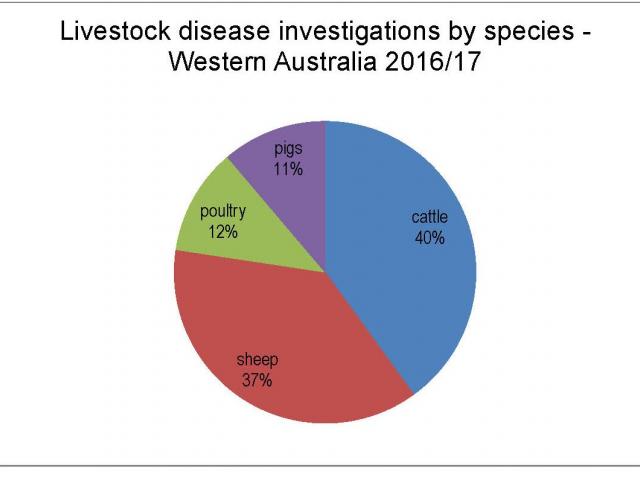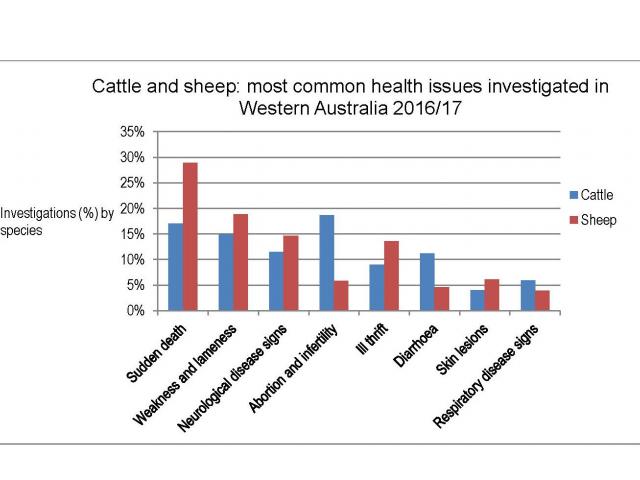1000+ reasons for WA’s high animal health status
In 2016/17, Western Australian producers again provided evidence of the state’s excellent livestock health status with more than 1000 calls to a vet to investigate and submit laboratory samples when animals showed signs of illness.
Animal Health Surveillance Manager Marion Seymour said that WA producers and vets were the frontline of the state’s animal health surveillance team.
“When a producer calls their vet when animals show signs of disease, the results from the testing are used to support Australia’s proof of freedom from serious diseases that could affect human health, livestock production or trade.
“The producer also benefits directly from a diagnosis of the cause of disease, which allows them to adjust their management so that they can prevent the disease in future.
“Last financial year, the Department’s veterinary pathologists carried out more than a 1000 investigations into animal health, with more than 900 of these on the main commercial livestock species – cattle, sheep, pigs and poultry,” Dr Seymour said.
Livestock disease investigations by species – Western Australia 2016/17
“Importantly, not only did producers contact a vet on a range of livestock species for investigation, but the investigations also occurred across Western Australia, demonstrating that our surveillance systems are widespread across livestock production areas and that we are likely to recognise any serious diseases that may occur at an early stage.
“But we can’t afford to be complacent. As WA exports about 80% of our livestock and livestock products every year, valued at about $2b annually, it is vital that everyone who works with livestock, including producers, vets, stock agents, transporters and processors, reports sick livestock signs to their private vet, a Department vet or the Emergency Animal Disease hotline on 1800 675 888,” Dr Seymour said.
Most common health issues
Dr Seymour said sudden death, weakness and lameness, neurological disease signs and abortion and infertility topped the list of the most common health issues investigated.
“It is vital to investigate disease signs like these because while they are most likely due to an endemic disease or management issue, there is a chance that they could be an exotic disease.
“The signs of some reportable and exotic diseases can look similar to common diseases. For example, sudden death could be due to anthrax, while lameness occurs in foot-and-mouth disease and mad cow disease would present with neurological signs.
“In 2016/17, more than 400 of the sheep and cattle cases submitted for laboratory investigation were also tested for reportable and exotic diseases, providing evidence to our domestic and international markets that we were free of these exotic diseases.
“Sheep and cattle owners also received a diagnosis, which helped them to improve productivity and profitability.
“For cattle, the top three most common diagnoses were pneumonia caused by bacteria such as Pasteurella, rotavirus diarrhoea and selenium deficiency, while for sheep, worms (scour or Barber’s pole) were the main issue, followed by ovine Johne’s disease and pneumonia caused by bacteria such as Pasteurella.
“The Department of Primary Industries and Regional Development continues to subsidise these disease investigations to support WA producers’ ongoing access to premium markets for livestock,” Dr Seymour said.


